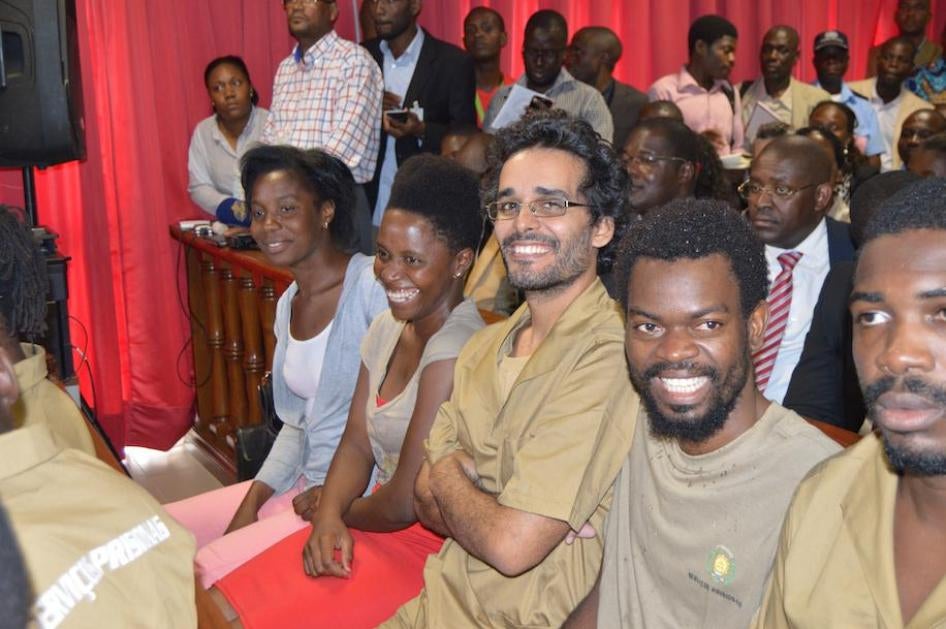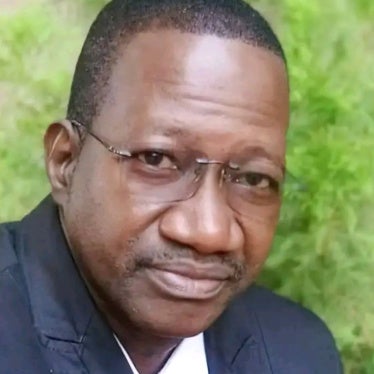This week, a court in Angola found 17 activists guilty of preparing a rebellion against the government and sentenced them to between two and eight years in prison. The hefty terms shocked many Angolans, reminding them once again that rights to free speech and peaceful assembly are still a pipe dream.
The activists were arrested last June following book club meetings where peaceful protest and democracy were discussed, inspired by Gene Sharp’s book, From Dictatorship to Democracy. They were charged with crimes of “preparatory acts of rebellion” and “plotting against the president and state institutions.”
The absurdity of the government’s case was obvious during court proceedings. The state prosecutor screened secretly recorded video footage that showed the activists discussing possible peaceful protests and criticizing the rule of President José Eduardo dos Santos, who has been in power for 36 years. But the intelligence agents called to provide evidence about the footage did not show up in court.
The prosecutor also submitted an alleged wish-list of people who could serve in a possible transitional government that had been published on Facebook, though he presented no evidence showing that any of the activists wrote it. Many of those on the list refusing to testify now risk charges for disobeying court orders. But those who did appear in court denied any intension to overthrow the government.
In a further bizarre twist during closing arguments, the prosecutor dropped the charge of “plotting against the president” and introduced a new charge of “criminal conspiracy,” punishable by up to 12 years in prison. No new evidence was presented and the defense team was given no opportunity to contest these allegations.
Peacefully criticizing the government, whether in a book group or out on the streets, is not a crime. The activists’ actions were protected by free speech provisions in Angola’s constitution and in international treaties that Angola has ratified. Diplomats urged this week that Angola’s constitution be respected.
The activists should never have been arrested. The only action that will give some credibility to the Angolan government’s claim that it respects human rights – including the rights to free speech, peaceful assembly, and to a fair trial – is for the authorities to quash the conviction and release the activists.









